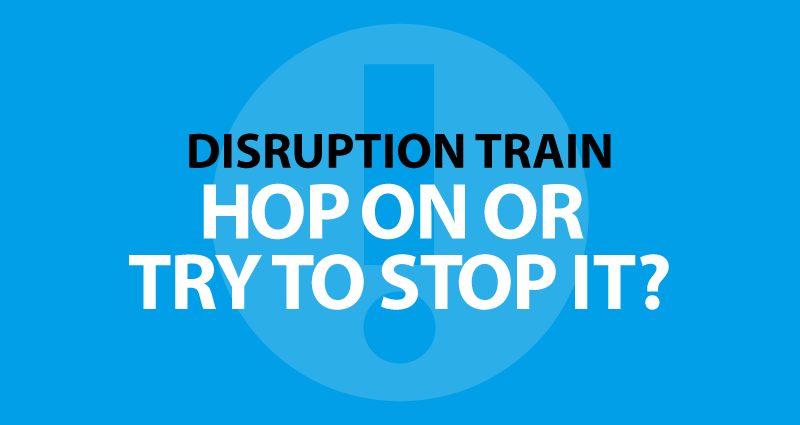
Disruption tattletales
We all know what a “disruption” is, right? Some new technology or idea that disrupts an existing way of doing business.
What’s interesting to me is that you generally see one of two reactions to any disruption: people who want to find out more and maybe get on board, and what I call “tattletales” — people who want to find any reason the disruption violates some principle or law, and they just want it to go away.
For example, the Uber and Lyft ride sharing platforms are huge disruptions in the field of personal transportation. The “tattletales” just grump and grouse about people “misusing” personal car loans to buy cars for ride sharing, or complain that they don’t have the proper insurance, or don’t pay the same taxes as taxis.
On the other hand, some people see disruption as opportunity, and immediately get to work on solutions, such as insurance products and car loans tailored to the needs of ride sharing drivers, or tax and permit structures that make sense for part-time drivers.
Same goes for any disruption — many businesses, for example, have lengthy “tattletale” style zero-tolerance rules about how employees can and can’t (mostly can’t) use social media. Others have a simple professional behavior policy that applies in all contexts — in person as well as on social media. Which one is positioned to recruit the best and brightest people and to reap the benefits of happy, connected employees and positive social media exposure?
The disruption train is always running — you can hop on board or get run over trying to stop it.
- CU Numbers Need Marketing Love, Too - April 2, 2024
- Will it blend? The only CU fintech question that matters. - February 13, 2024
- Solving the CU marketing “now what?” problem - January 16, 2024
